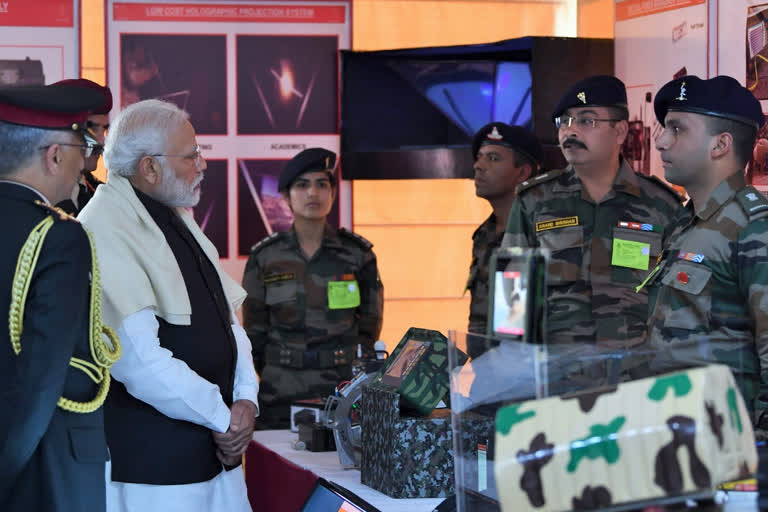New Delhi: The Chief of the Army Staff, General MM Naravane, in a press conference on the eve of Army Day, said, "We swear allegiance to the Constitution of India. Be it officers or jawans, we have taken an oath to protect the Constitution, and that is what should guide us in all time and all our actions. What it translates into is also the core values which are enshrined in the Preamble to the Constitution, which are justice, liberty, equality, and fraternity. That is what we are fighting for".
The Army Chief was emphasizing that every soldier of the Indian Army swears an oath that he will “bear true faith and allegiance to the Constitution of India”. While this fact is commonly known, the real importance of the Army’s Chief’s statement lies in the fact that it comes in the backdrop of some voices that have been claiming that the military is being increasingly politicised. Recently, General Bipin Rawat's comments on the anti-CAA protests had been sharply criticised by opposition leaders and some military veterans as being political.
One of the fundamentals of the military ethic is the 'supremacy of the nation-state'. The military exists for the survival and well-being of the state and not vice versa. In any democracy, the will of the nation is expressed through its political leadership, and their views must take precedence. Clausewitz, in his treatise On War, writes: “The subordination of the political point of view to the military would be unreasonable, for policy has created the war; policy is the intelligent faculty, war only the instrument, and not the reverse. The subordination of the military point of view to the political is, therefore, the only thing which is possible.”
Read: Army ready to take control of PoK: Gen Naravane
However, the political subordination of the military does not translate to adopting politically partisan positions. Morris Janowitz, a leading scholar of military sociology, in his book The Professional Soldier, says, “the professional behavior of the military has profound political consequences. But, traditionally, officers have not fought primarily because of an explicit political ideology. On the contrary, the political interests of the typical officer have been intermittent at best.”
There are good reasons for the military to remain apolitical, and the primary among these is professionalism. Many scholars of civil-military relations directly link the professionalism of the military to its apolitical nature. Keeping the military out of politics will maximize its professionalism, and a professional military will readily accept civilian control. This is a win-win situation for any democracy.
